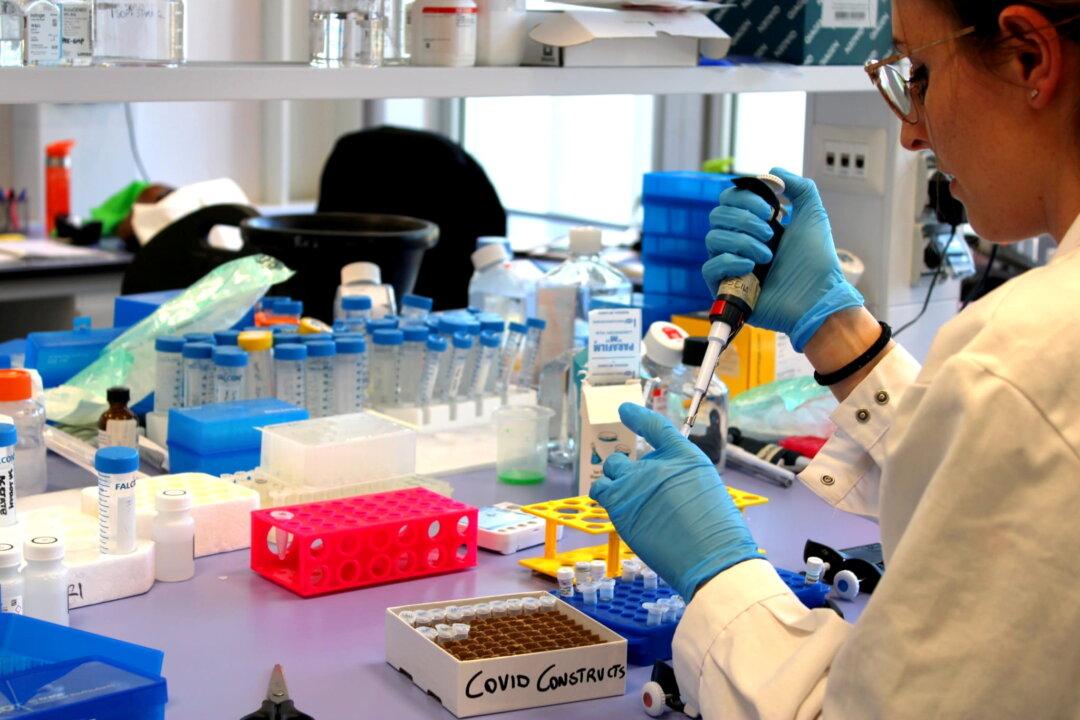Researchers with Boston University have developed a strain of COVID-19 that killed 80 percent of mice infected with it, according to a preprint study released last week, prompting concern and condemnation.
The team of researchers extracted the Omicron variant’s spike protein, which they noted has “an unusually large number of mutations.” The researchers then attached Omicron’s spike protein, which is a structure that allows a virus to bind and invade human cells, to the original COVID-19 variant and dubbed it “Omicron S.”





